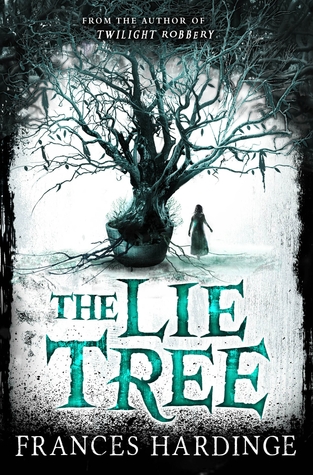My hold on the newest Frances Hardinge came in! [Insert more gushing about the wonders of libraries.] I shall settle in my chair with it and not come back to reality for a good, lovely while.
...
I don't even know why I try to review Frances Hardinge's books. They are so hard to describe. And also, you should just read them because they are always brilliant and wise and will wind their tendrils around your heart and into your brain and leave you feeling like the world is more magical and people are more multi-dimensional than you had ever understood.
Unraveller is about curses and hatred and despair, and loyalty, healing and love, and how all those things can exist within one human heart, and that's what makes us human and worth the time and effort and love it takes to understand and heal us.
"I'm good at hate. I'm better at it than anything else I've ever done! This is the only power I've ever had!"
Every Hardinge book is completely different from every other Hardinge book (I'm pretty sure I say this in every review, but it's important to remember), but Unravelled reminds me most of Cuckoo Song. It has the same creepiness, and the inhabitants of the Wilds have a lot in common with the Besiders. Hardinge is wonderful at taking folktales and teasing out the logic behind all the weirdness to create a coherent, shiver-down-the-spine otherworld with its own terrifyingly logical rules. The Wilds are a swamp-forest, spooky and dripping with menace, inhabited by beautiful and terrifying monsters that are almost familiar.
As I was reading, I found a scrap of paper and wrote down "wildly inventive" and "stunningly coherent," because I think those are the best ways to describe a Hardinge novel. The curses in this book are folktale weird, like being turned into a tree that's then cut down and made into planks which are made into a boat. Kellen is the unraveller, because he can sense the nature and origin of a curse and unravel it, transforming even the planks in a boat back into a person. He is travelling with Nettle, who is having trouble readjusting to being herself again after Kellen unravelled her curse. (No, she wasn't the boat. I won't spoil the reveal of her curse.)
At first it seems the novel will be about Kellen and Nettle finding cursed people and learning their stories so Kellen can fix them. But it turns out that people, and curses, are a little more complicated than that, and so is the novel. But it all makes so much sense—that's what I mean by coherent. It's quite delicious and satisfying the way everything comes around in the end. You recognize the character and story elements because you've seen them in folktales, but also because you've seen them in yourself and the people you know. Everything is a brilliant metaphor for the workings of the human heart. Anger and trauma and patience and forgiveness.
Hardinge's books have a darkness in them, because she doesn't shy away from the hard things in people's souls; she sees them so clearly; but she sees them with deep compassion. She's a lot like T. Kingfisher that way. That's what keeps me eagerly waiting for the next Hardinge novel; her ruthless compassion, and her brilliant writing.
I do not like humans. Your hearts smell of earth and sweat. you miss notes when you sing. You bleed too easily. You walk in with stories tangled around you like briars and do not notice. You trip over everything and break it. You are too real, and it is wasted on you. I lose patience.







